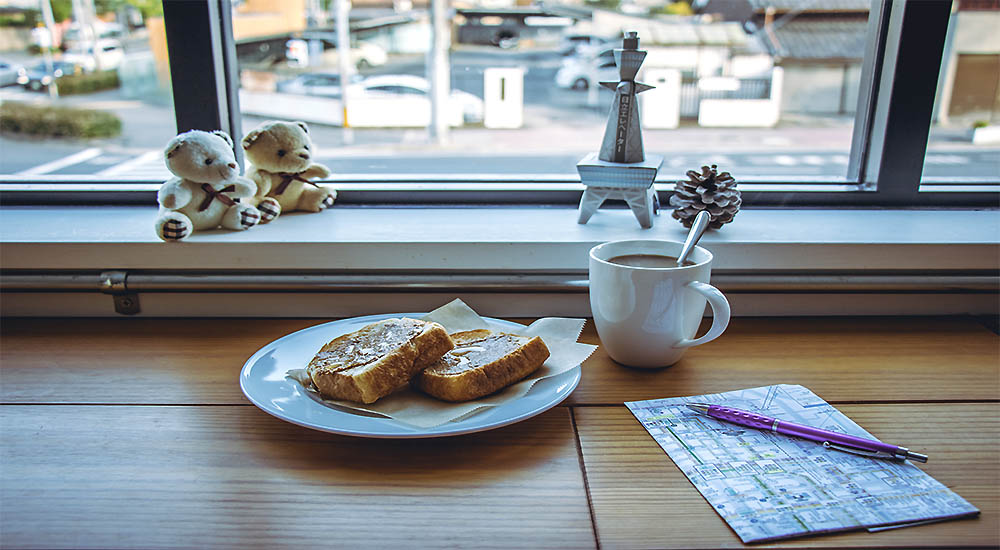Traveling with Gluten Intolerance


I recently traveled overseas and the experience reminded me of the important aspects of how to successfully journey within the confines of food intolerance.
Preparation is Key
Be prepared might be the motto of the boy scouts, but it needs to be yours as well. There are some foods that travel well and I make sure that I always have them to hand for the plane trip as well as the duration of my stay away. Let’s face it, when you’re hungry, you’re hungry. It’s difficult to concentrate and make good decisions when you’re starving.
The solution is to always have something to hand that is portable, healthy, and ready to eat. We have protein bars here at the clinic that are balanced, gluten, soy, and dairy-free and fit the bill quite nicely. I have problems with many of the bars on the market, for one reason or another, but if you find one that suits you and won’t ‘melt’ then that would be a good choice for you.
Not everyone can tolerate raw nuts, but if you can it’s a good portable snack also. Fresh fruit gets ‘bruised’ over time but if you just need something to have on hand for that day, it too can be a good way to get over the ‘hungry’ while you’re finding something you can eat. I have been known to get on a plane with hummus, unrefined whole-grain crackers, protein bars, a piece of fruit, and some nuts. It doesn’t take up a lot of room and it will sustain you during a long flight.
The moral of this section is ALWAYS have something in a purse or backpack that you could substitute for a light meal if you needed to. This will prevent you from ever eating the wrong thing simply because you were too hungry to think straight.
Speak Up
You can’t be shy and be successful on your gluten-free diet. The problem is that food can have gluten in it, even when it ‘shouldn’t’.
Here’s a personal example: Chili. It should contain beans, tomatoes, spices, veggies, perhaps some meat, etc. There is no reason to have gluten in it and your basic chili recipe won’t call for it. But the food that is pre-prepared often has thickeners and stabilizers that contain gluten – I learned this one the hard way.
If you aren’t willing to ask to make sure, you are going to get sick. And while getting sick is never fun, it’s particularly worse when you’re away from home. If you’re in a foreign country, bring a card with you that lists out all the foods that you cannot eat. These are available on the internet in almost every conceivable language.
Strategize
Many people who love to eat plan their next meal while they’re eating their current one. I grew up with a mother like that. She was a gourmet cook and loved to discuss and plan for her next meal.
You don’t have to be a ‘foodie’ but if you’re going to successfully maintain your gluten-free diet, you can’t wait until you find yourself hungry before thinking about where and what you’re going to eat. That might work fine when you’re at home and you have your ‘safe spots’ to eat, but it isn’t going to work when you’re traveling.
While I was away recently I actually taught the hotel how to make my morning smoothie. I love starting my day with my green smoothie and the thought of not having one for a week and a half was just not something I wanted to do. It’s just four ingredients thrown into a blender – not rocket science – so I sat down with them and we worked it out. It wasn’t difficult and I was very glad I did.
I spent part of my time away in Italy. Celiac disease is a word that most people know there (Chill-e-aka in Italian) and I took advantage of this in order to enjoy some lovely Italian pasta – I’m half Italian so I LOVE my pasta!
I realized, while walking around Naples at lunchtime, that a person who is very helpful in getting around a city is a concierge of a hotel. I stopped at the next hotel I saw and asked the concierge for a restaurant that was ‘celiac friendly’. I was lucky in that there was one a mere two blocks away and I thoroughly enjoyed my lunch there.
The point I’m making is that it’s okay to ask for help and utilizing people such as a concierge, whose job it is to be ‘in the know’, can make your job of feeding yourself correctly much easier.
Educate
Sharing what you know about gluten intolerance will help others. Do realize that likely 30% or more of our population suffers from gluten intolerance. You are not alone and you are definitely in no way ‘weird’ or ‘odd’. I
n fact the more you discuss gluten intolerance with others the more likely you will help someone who is suffering from ill health but has no idea why.
Here’s a case in point. I was at an afternoon tea at our hotel. A woman sat down next to me with a plate full of desserts. I was simply drinking green tea and she made some comment about why I wasn’t trying some of the many dessert offerings. I explained that I was gluten intolerant. Interestingly she has a daughter who is gluten intolerant but who doesn’t follow the diet because she doesn’t want to be ‘different’. Not only does her daughter suffer from severe life-long digestive problems but she has also attempted suicide on several occasions. It was a shocking and depressing story in and of itself, but perhaps more so when you think of how many others are in the same situation.
In all likelihood, if the daughter had only been educated properly, she would have seen the importance of maintaining her gluten-free diet and potentially would have saved herself from trying to take her own life.
Upon further discussion, the woman herself had an autoimmune disease, but no one ever suggested that she get tested for gluten despite her daughter’s diagnosis.
You Can Do It!
In summary, it does take some planning, speaking up, and strategizing to be successful on your gluten-free diet while traveling. The educating part is not a necessity but it will make you feel good to know that you’ve helped someone. Does that sound like a lot of work?
The truth is that maintaining good health on this planet, whether you’re gluten intolerant or not, does not come effortlessly. It does take some work. But the result of enjoying good health is well worth it.
I hope you find this helpful. Please let me know of any questions you have or how I can assist you to achieve greater health. Our destination clinic treats patients from across the country and internationally.
Do you need help with your health?
We have the diagnostic and testing tools, the clinical experience, and a different medical approach to discovering the root cause of why you have the symptoms that are bothering you. As long as you are ready to make some dietary and lifestyle changes, we can help you. We will "hold your hand" through the changes, step by step, to make each step an easy one. We are located in Clearwater, FL, at 1000 S Ft Harrison, at the corner of Ft. Harrison Ave. and Magnolia St. There is plenty of parking space directly accessible from Ft Harrison. If it is not convenient for you to come to Root Cause Medical Clinic, we offer telehealth/telemedicine consultations to residents of certain states. Call us for details.
Contact us for a Consultation – Call 727-335-0400

Dr. Vikki Petersen DC. CCN
Founder of Root Cause Medical Clinic
Certified Functional Medicine Practitioner
Dr Vikki Petersen is a public speaker, author of two books, several eBooks and creates cutting edge content for her YouTube community. Dr Vikki is committed to bringing Root Cause Medicine and its unique approach to restoring health naturally to the world.
Ask a Doctor
Have a health concern you'd like to speak with a doctor about? Or just want clarity on a subject? Ask Us!


